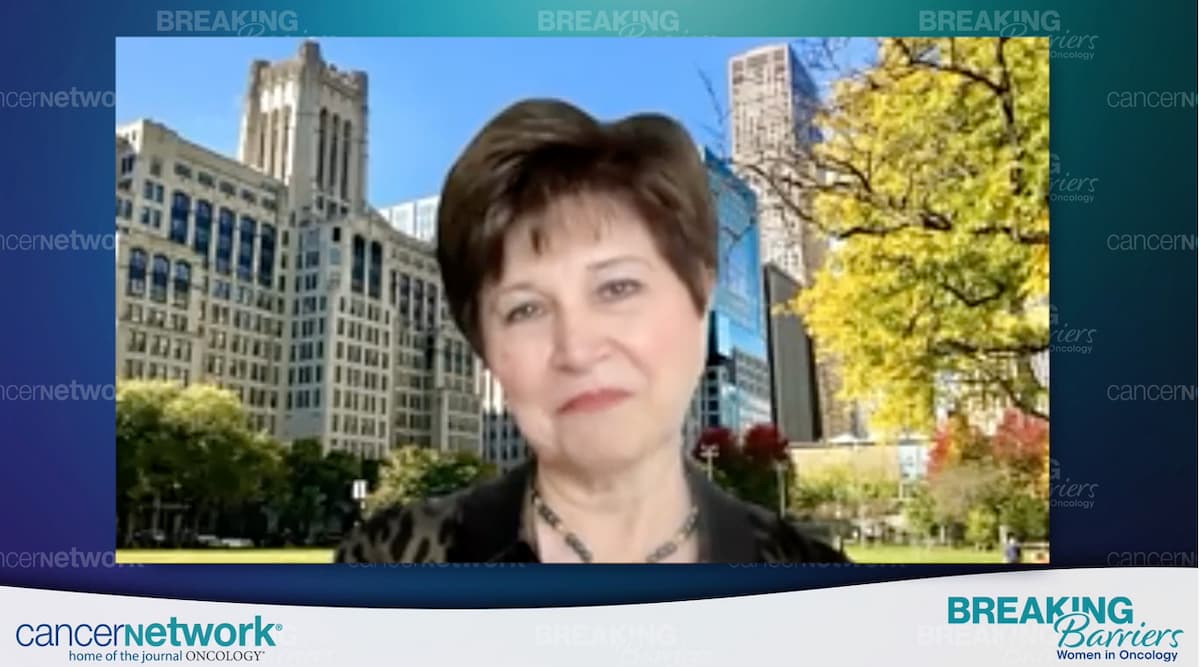
Finding Ways to Break the Mold in GU Oncology

Leaders in genitourinary oncology spoke about key research advances as well as personal experiences in navigating the field.
As part of Breaking Barriers: Women in Oncology, Maha H. Hussain, MD, and Sarah E. Fenton, MD, PhD, spoke with CancerNetwork® about developments in their careers and the evolution of research in the genitourinary oncology (GU) field. Additionally, they discussed their personal experiences in the field, which ranged from applying key pieces of advice from former mentors, handling challenges, and maintaining a healthy work/life balance.
Hussain is a Genevieve E. Teuton Professor of Medicine at Northwestern Medicine, and her mentee and fellow colleague, Fenton, is an assistant professor of Medicine at Northwestern Medicine.
The conversation partly focused on how the GU oncology landscape has evolved over time. According to Hussain, funding for new research and clinical trials has grown due to partnerships with pharmaceutical companies, which has accompanied a growth in median survival for patients with metastatic castration-resistant and metastatic hormone-sensitive prostate cancer. Looking ahead, Fenton said she hopes to see a greater proportion of patients achieve improved disease control, thereby leading to more treatment discontinuations or longer treatment-free intervals.
Additionally, Fenton described some of the advice she received that impacted the trajectory of her career and helped her decide to specialize in GU oncology.
“You need to stick with things that are important to you, worth your time, and are going to help people,” Fenton said. “That is the best piece of advice that Maha has given me as I’ve been moving through and thinking about what projects I’m going to start and where I am going to work hard.”
Hussain and Fenton also spoke about some of the personal challenges they have encountered in genitourinary oncology, including the difficulty of balancing their personal lives with professional aspirations. Both spoke to the importance and possibility of caring for their families while establishing priorities for their work.
“You can parallel-track your career and your personal life. I would say motherhood is wonderful; it’s a wonderful opportunity to be a mother,” Hussain said. “At the same time, it was a wonderful opportunity to be a physician and move the field there and work hard. Don’t forget that your personal life is very important because a happy personal life also reflects on your work life.”
Newsletter
Stay up to date on recent advances in the multidisciplinary approach to cancer.



































